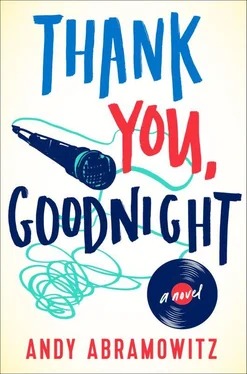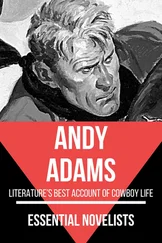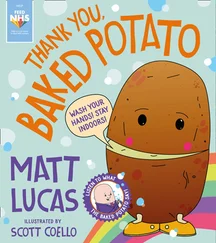We blew through the old songs as if sliding into a loose pair of corduroys, and stumbled through the new stuff like the amateurs we’d allowed ourselves to become. The technical aspects of playing required some modulating on our part. The mix was often hideously out of whack and sometimes a microphone would suddenly emit an explosive shock, nearly searing off my lips. Even standing together in band formation took some adjusting to. For one thing, I found myself squinting down at the frets of my guitar, growing more convinced by the minute that we now needed a band optometrist. For another, I had to reacclimate to Jumbo’s bulk. We were roughly the same height, but he just felt bigger. Being Jumbo required more space. There was, I’d learned, a relativity to acceptable workplace girth. For years, I’d been sequestered away at a law firm where, almost as a rule, people kind of let themselves go. (If the folks down the hall were going for a slice of sausage and pepperoni and you declined, it had better be because you were having a colonoscopy in an hour.) Whereas I was a waify little thing among the lawyers, in the bony world of rock, where people didn’t eat any healthier but still managed to appear gaunt and strung out, I was Dom DeLuise. Jumbo, however, still made the rest of us look like action figures.
One morning, Warren and I were sipping coffee outside when we overheard acoustic music kicking to life through the studio walls. At first, there was just the sound of Jumbo’s easy strumming, killing time during a caffeine interlude. Then Mack’s bass glided in, and soon, after a few steady measures, there was singing. An earnest, naked voice: Mack’s. The song was “Glad and Sorry” by Faces, a melancholic ballad with a steady, insistent beat that seemed to welcome the unadorned vocals of someone who’d heretofore only sung lead in her shower. I stood mesmerized—at the very sound of her, at the unassuming comfort with which she’d taken the mic. And when the chorus crept around and Jumbo chimed in with effortless harmony—as if this wasn’t an impromptu jam, as if they’d actually played this song together at any point before this spare moment had presented itself—I realized I never wanted to hear anyone else sing “Glad and Sorry” ever again.
Warren and I waited until the song ended before stepping through the door. Mack looked over at me with a shy grin, then retreated to the flimsy barstool that she’d positioned next to her amp. I swallowed a sigh and thought to myself, This is how it starts.
A few weeks darted by. One day, a summer shower beating upon the sizzling streets, the door flung open and in strode Sonny. With his hands in the pockets of his charcoal slacks, he nodded around the room at each of us, not necessarily with approval. He eyed the studio, taking in the booth, the upright piano, the vintage control board, and the stained yellow sofa propped up on three legs behind it.
“Bic has really let this place fall to shit,” he said by way of greeting. “I’ve recorded in a lot places, but never in the middle of a rain forest. No matter. Towering genius disdains a beaten path.”
Warren winked at him. “Lincoln, right?”
“Our emancipator, motherfucker.”
And so it began. I happily readjusted to the creative process as piloted by Sonny Rivers. Although given to occasional fits of speech making, he was generally not a gushy guy. “Let’s move on” was high praise. The pursuit of his vision rarely entailed telling you how to play. Instead, he told you what to feel. He spoke up only to motivate. If he was struck ill by a lyric or even an entire verse, he’d merely repeat the offending words, his slow delivery revealing their shittiness: “So, at this point in the song, you want to sing ‘I slipped on a banana peel and ended up beside the one I love.’ Do I have that right?” That was usually enough to get you redrafting. In the end, you wanted to do it his way because his way worked. Careers were born and reborn under Sonny’s sonic guidance.
Considerable pressure for a lawyer, a high school teacher, a sex therapist, and well, whatever the hell Jumbo was.
A studio track is essentially a big lie, an illusion of musicians grabbing their instruments and cruising through a song, each player hitting all the proper notes at all the proper times at all the proper levels. A recording begins as a series of isolated performances extracted from musicians standing tired and alone in a booth over the course of repeated laborious takes—lasting hours, sometimes days—after which they’re all slung together and mixed into a seamless, contrived blend. When you hear some hot dish singing her sweaty ass off, utterly depleting herself by song’s end, she probably had a kale smoothie and a sushi roll, possibly even a marriage, between the opening line and the final chorus. Your favorite piano track likely took weeks to get right and was put down in fragments. It wasn’t even a real piano. Because of the long stretches of tedium, recording an album can often feel like a spectator sport. People take up addictions simply for something to do.
Sonny also happened to be tremoring his way through a smoking cessation program, so he was not looking for a minute of downtime, lest his fingers start fidgeting in the direction of a pack of Newports. He occupied himself by occupying the hell out of us with long hours in the studio. Warren commuted back and forth from Lambertville to maintain a sense of normalcy with Lauren and Patrick; Jumbo crashed with an unnamed childhood friend (I was just happy it wasn’t me); Mackenzie sublet an apartment in Old City, taking the opportunity to live in an area of town that had always struck her fancy; and I got to sleep in my own bed every night, which helped me remain somewhat connected to Sara—who seemed somewhat involved in divorcing her husband and somewhat involved in rediscovering him.
One Friday night, as I walked in from a long week in the studio, she greeted me at the door wearing dark jeans, a red silk shirt, and a freshly paved path of lipstick. “Are you up for a movie?” she asked.
Soon, we were sitting at a bar table in a rollicking saloon across the street from the theater, sipping cold lager and eating turkey burgers with sweet potato fries. At the last minute, we sprung over the curb, bought tickets and candy, and dropped into our seats just as the house lights dimmed and a commercial for Stella Artois burst upon the screen with a deafening flash.
Sara had selected a film by an Iranian director with a string of critically lauded dramas. During a heavy scene in which a man forced to leave Tehran during the 1979 revolution is reunited with his family many years later, Sara, without looking at me, placed a Junior Mint into my mouth. As I chewed it, I looked over at her, but she remained fixed on the movie, her eyes flickering with the light that danced off the screen.
When the credits were over, we walked down the block to a coffee shop that served the best vanilla latte in the city, according to Sara. The barista, a young man with hoops in his earlobes and a beard that reached his sternum, smiled with familiarity at Sara and said, “No whipped cream, right?”
Up against the window, on barstools for the second time that night, the soothing tones of Miles Davis’s trumpet separating us from the brigades of bar hoppers outside, we sat together and praised the movie. Sara then asked how the record was coming along. I started to tell her how the music was really starting to take flight, what a thrill it was to hear these naked compositions being forged into actual songs. I stopped myself and looked into my cappuccino.
“You don’t want to hear about this,” I said. “It’s boring if you’re not actually there.”
I also didn’t think it fair or wise to amplify the joy I was getting from a venture that didn’t involve her but did involve Mackenzie. Mack was still something of an unknown quantity to her. And to me, for that matter.
Читать дальше












